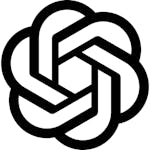ChatGPT Definitions: A to Z Glossary Terms
Interested in chatgpt but you keep seeing terms unfamiliar to you? This A-to-Z glossary defines key chatgpt terms you need to know.
ChatGPT developers are actively engaged in creating, deploying, and maintaining language models using the GPT framework. They leverage various programming languages, frameworks, and libraries to build applications that facilitate natural language processing, understand context, generate human-like text, and collaborate effectively with AI research and development teams. With ChatGPT's capabilities, they drive innovation in the field of conversational AI, enabling advanced language understanding and interactive experiences for users.
This chatgpt glossary can be helpful if you want to get familiar with basic terms and advance your understanding of chatgpt.
ChatGPT Definitions: A to Z Glossary Terms
Interested in chatgpt but you keep seeing terms unfamiliar to you? This A-to-Z glossary defines key chatgpt terms you need to know.
ChatGPT developers are actively engaged in creating, deploying, and maintaining language models using the GPT framework. They leverage various programming languages, frameworks, and libraries to build applications that facilitate natural language processing, understand context, generate human-like text, and collaborate effectively with AI research and development teams. With ChatGPT's capabilities, they drive innovation in the field of conversational AI, enabling advanced language understanding and interactive experiences for users.
This chatgpt glossary can be helpful if you want to get familiar with basic terms and advance your understanding of chatgpt.
ChatGPT Terms
Artificial Intelligence (AI)
Artificial Intelligence is a branch of computer science that aims to create intelligent machines capable of simulating human-like cognitive processes.
Chatbot
A Chatbot is an AI-powered computer program designed to engage in conversations with humans, often used for customer support and information retrieval.
Conversational AI
Conversational AI refers to AI systems and technologies that enable natural language interactions between humans and machines.
Deep Learning
Deep Learning is a subset of machine learning that involves training artificial neural networks with multiple layers to perform complex tasks.
Encoder-Decoder Architecture
Encoder-Decoder Architecture is a neural network design used in natural language processing tasks, such as machine translation and chatbots.
Fine-Tuning
Fine-Tuning is adapting a pre-trained language model like GPT to perform specific tasks or improve its performance on particular domains.
Generative Model
A Generative Model is an AI model that generates new data instances based on the learning patterns from the training data.
Human-in-the-Loop (HITL)
HITL refers to integrating human feedback or intervention in AI systems to improve accuracy and reliability.
Inference
Inference uses a trained AI model to predict or generate outputs based on new input data.
Joint Training
Joint Training is the process of training multiple AI models together to improve performance on specific tasks.
Knowledge Base
A Knowledge Base is a repository of structured data or information chatbots use to answer user queries accurately.
Language Model
A Language Model is an AI model that predicts the likelihood of a sequence of words in a given context, often used for text generation.
Multi-Task Learning
Multi-Task Learning is an approach where a single AI model is trained on multiple related tasks simultaneously to improve overall performance.
Natural Language Processing (NLP)
Natural Language Processing is a field of AI that focuses on enabling computers to understand and process human language.
OpenAI
OpenAI is an AI research organization that developed GPT and other advanced AI models and technologies.
Pre-training
Pre-training is the initial phase of training an AI model on an extensive data set to learn language patterns and general knowledge.
Query: A Query is a question or input provided to a chatbot or language model for generating a response.
Reinforcement Learning: Reinforcement Learning is a type of machine learning where agents learn by interacting with an environment and receiving rewards or penalties based on their actions.
Sequence-to-Sequence (Seq2Seq)
Sequence-to-Sequence is a neural network architecture used for tasks involving sequences, such as machine translation and chatbot response generation.
Transfer Learning
Transfer Learning is leveraging knowledge learned from one AI task or domain to improve performance on another task or domain.
Unsupervised Learning
Unsupervised Learning is a machine learning approach where AI models learn patterns and structures in data without explicit supervision.
Voice Assistant
A Voice Assistant is an AI-powered application that responds to voice commands and performs tasks based on spoken language.
Word Embeddings
Word Embeddings are numerical representations of words that capture semantic relationships between terms in natural language processing tasks.
Zero-Shot Learning
Zero-Shot Learning is a machine learning technique where an AI model can predict unseen classes or tasks without explicit training data.
Conclusion
Congratulations on completing the A-to-Z glossary of ChatGPT terms! Armed with this knowledge, you are better equipped to understand and explore the capabilities of ChatGPT and conversational AI. Whether you're using ChatGPT for practical applications or curiosity-driven experimentation, this glossary is a valuable resource to enhance your understanding and proficiency in AI-powered conversations. Embrace the potential of ChatGPT to engage, assist, and delight users through its natural language processing capabilities. Happy chatting and experimenting with ChatGPT!
Learn in-demand chatgpt skills from industry leaders.
Copywriting Courses | Natural Language Processing (NLP) Courses | Business Communication Courses | Chatbot Courses | Deep Learning Courses | Personal Productivity Courses | Marketing Analytics And Automation Courses | Office Productivity Courses | Prompt Engineering Courses | Generative AI Courses
 Join a community of over 100 million learners from around the world
Join a community of over 100 million learners from around the world Learn from more than 200 leading universities and industry educators.
Learn from more than 200 leading universities and industry educators. 70% of all learners who have stated a career goal and completed a course report outcomes such as gaining confidence, improving work performance, or selecting a new career path.
70% of all learners who have stated a career goal and completed a course report outcomes such as gaining confidence, improving work performance, or selecting a new career path.- 100% online
- Flexible schedule
- Mobile learning
- Videos and readings from professors at world-renowned universities and industry leaders
- Practice quizzes
Can’t decide what is right for you?
Try the full learning experience for most courses free for 7 days.Register to learn with Coursera’s community of 87 million learners around the world




